State of the World's Minorities and Indigenous Peoples 2016: Focus on culture and heritage
The chapters
This story pack features a collection of films, articles and photos that highlight the issues covered by the volume.
- 01
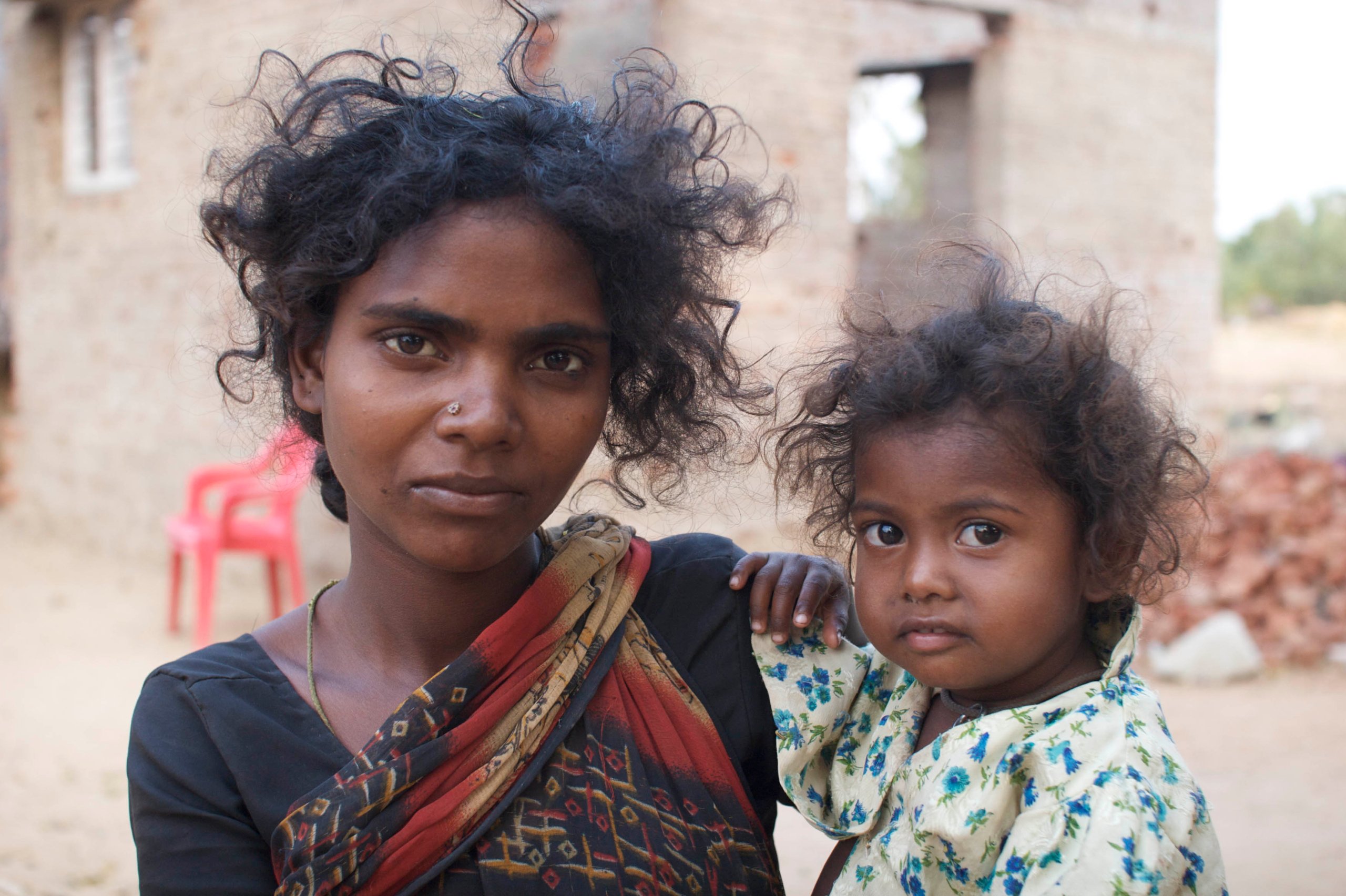
Introduction
In 2016, Minority Rights Group International’s flagship annual report State of the World’s Minorities and Indigenous Peoples focuses on culture and heritages. This story pack features a collection of films, articles and photos that…
16 min read
- 02
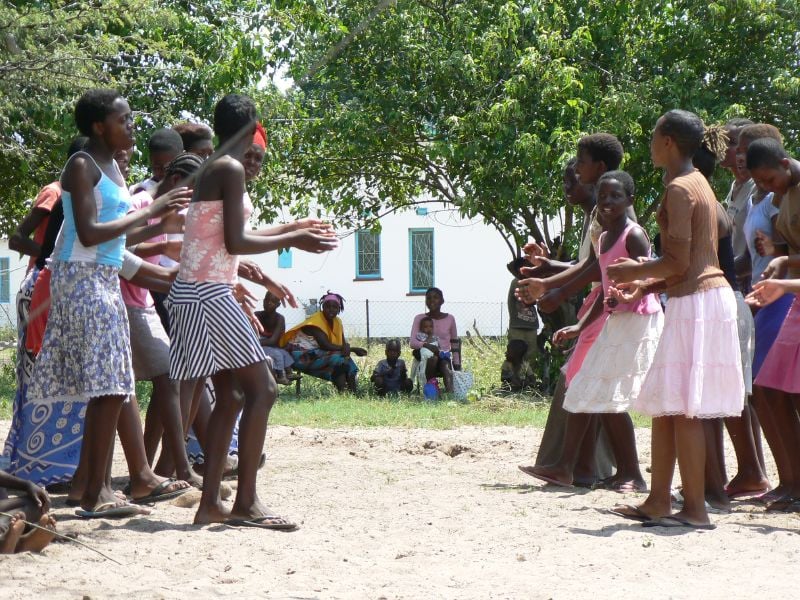
Film: State of the World’s Minorities and Indigenous Peoples 2016
Watch a short film outlining the key issues covered in MRG’s State of the World’s Minorities and Indigenous Peoples 2016…
1 min read
- 03
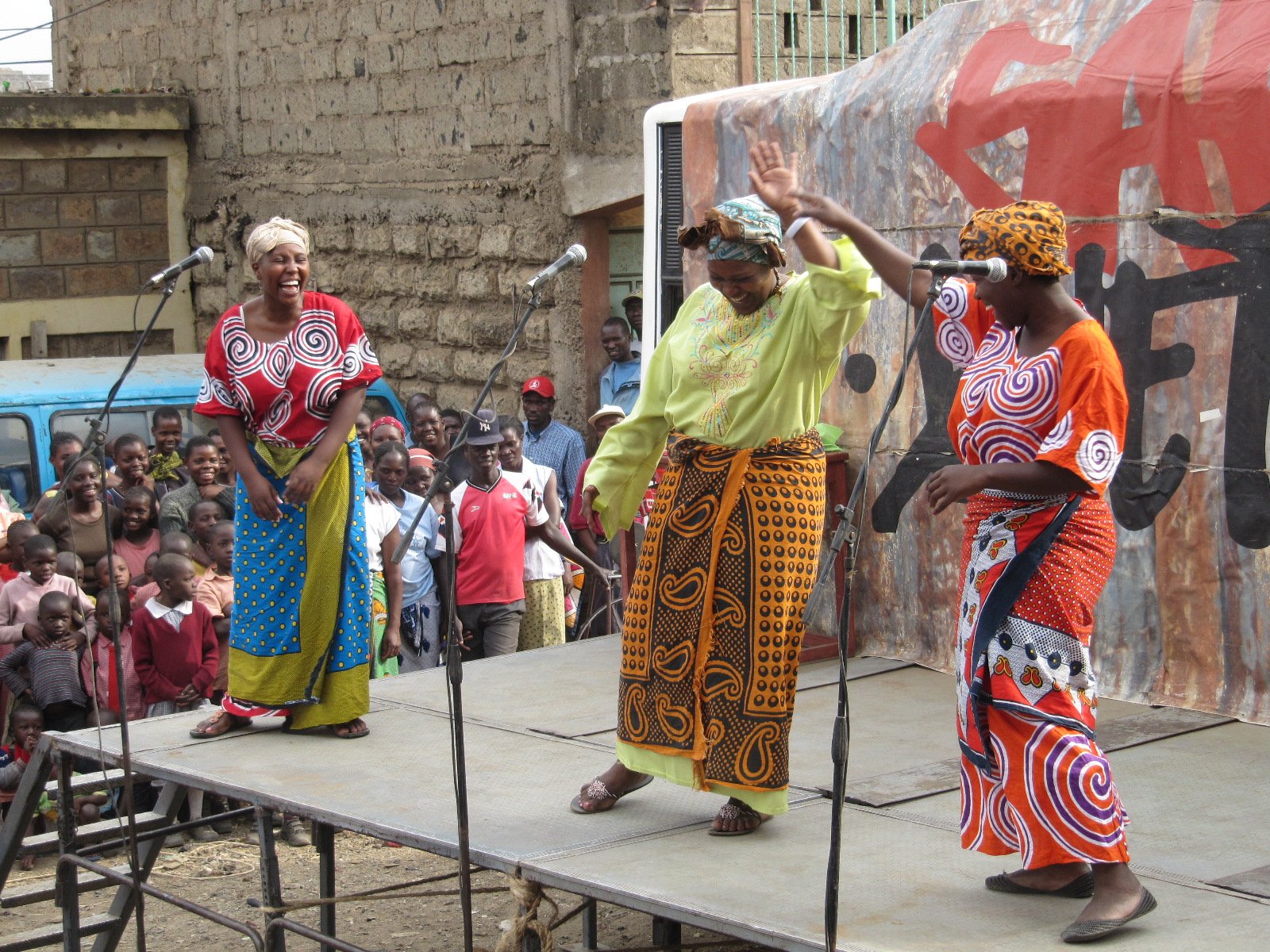
Creating change with arts and culture: MRG’s work
Since 2010, MRG has been using cultural programmes (such as street theatre) to challenge endemic discrimination and promote the human rights of minorities and indigenous peoples worldwide. This chapter provides an overview of our work and…
3 min read
- 04

Using culture to break down stereotypes of Italy’s Roma
By Sara Vincini Italy’s Roma are among the country’s poorest and most marginalized communities, with a long history of discrimination that has only intensified in recent years. A recent poll by the Pew Research Center found that as many as…
2 min read
- 05

Photo story: culture and heritage
Tibetan opera in Lhasa, Tibet. Cultural expressions, such as Tibetan opera, are transmitted from generation to generation, are constantly recreated and provide minorities and indigenous peoples with a sense of identity and continuity. Credit:…
1 min read
- 06
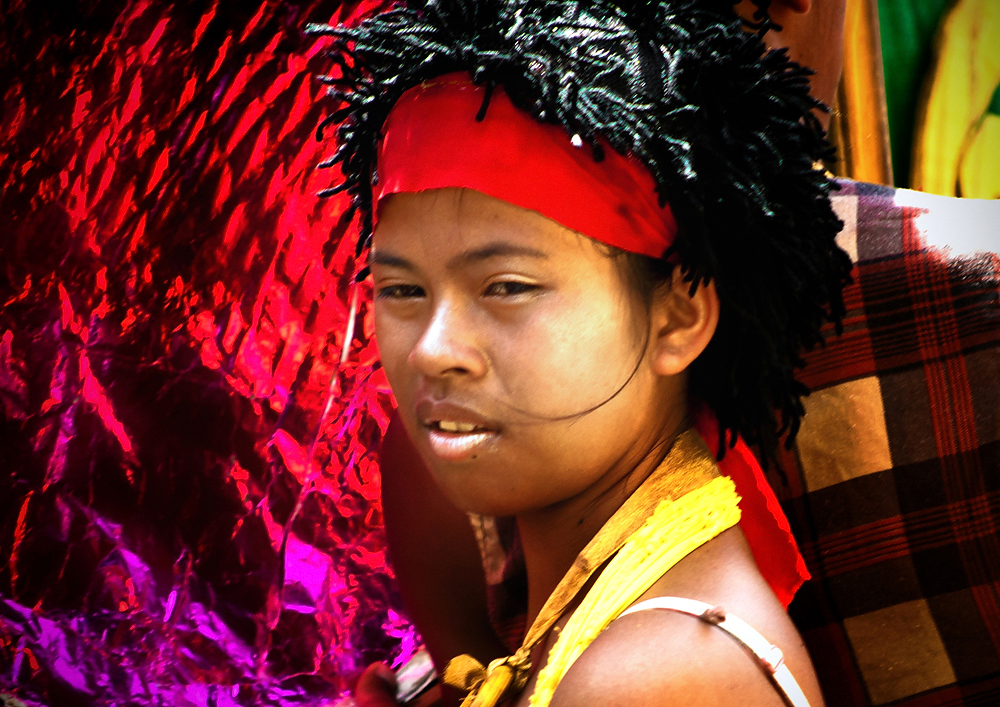
Philippines: Militarization and Lumad cultural rights
By Hanna Hindstrom At 4.00 am on 1 September 2015, a troop of armed men stormed an alternative school for indigenous Lumads in the southern Philippines. Teachers and students were dragged from their dormitories and rounded up, together with…
3 min read
- 07
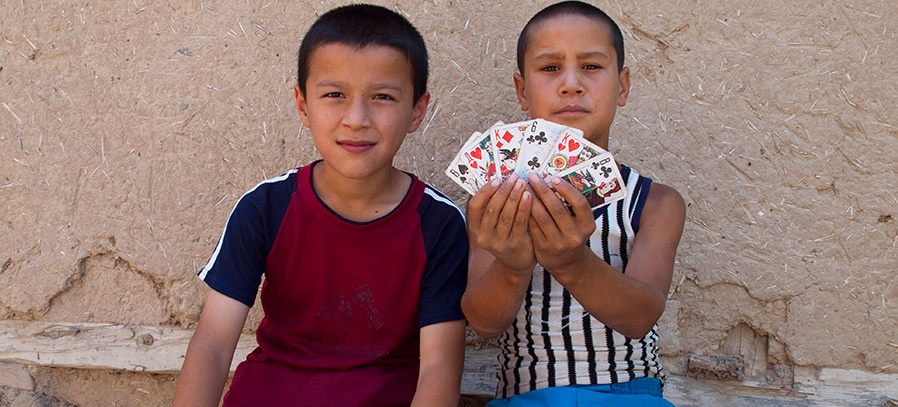
Tajikistan’s crackdown on cultural identity
By Amina Haleem The government of Tajikistan, the smallest country in Central Asia, has long targeted what it perceives as non-Tajik influences on its domestic culture. Poorly developed and discriminatory national policies have fragmented Tajik…
2 min read
- 08

Film: Say My Name
Filmed in four countries, ‘Say My Name’ tells the stories of people on the outside of society facing extreme discrimination. Name-calling, bureaucratic loopholes and racial exclusion prevent Baniris, Valentina and Phineas and…
1 min read
- 09
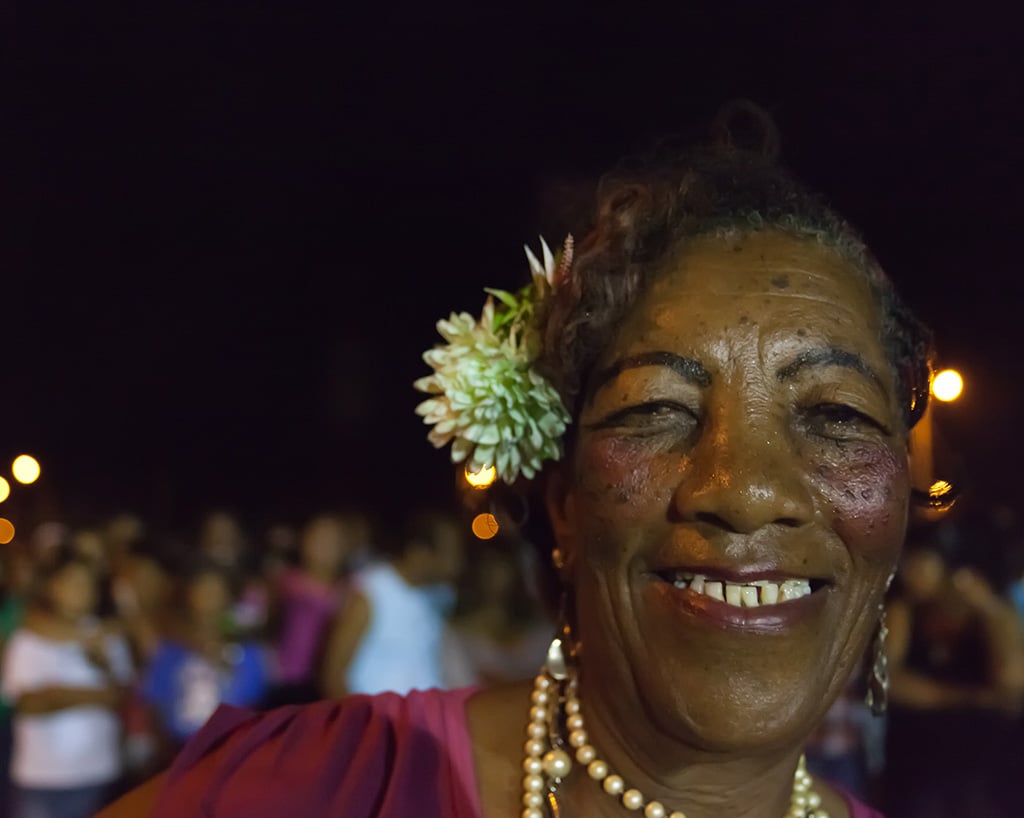
Peru’s Afro-descendants: from invisibility to a national ‘month’
by Genna Naccache Afro-Peruvians, who make up around 10 per cent of Peru’s population, have long suffered marginalization in every area of their lives. From health to education, many community members have limited access to basic services and…
3 min read
- 10
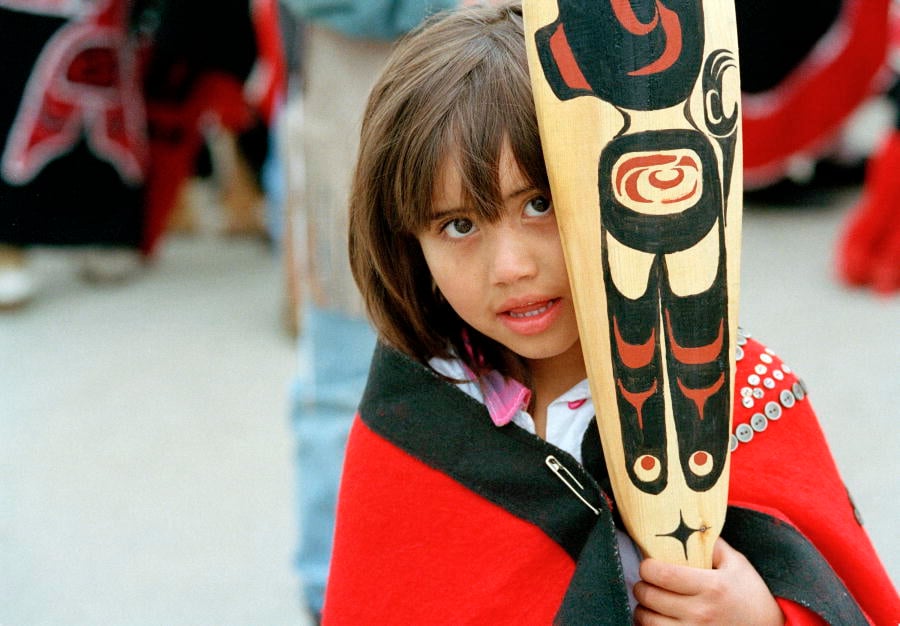
Canada: misuse of indigenous symbols in costumes
By Mariah Grant In October 2015, Jeffrey McNeil-Seymour walked into a Halloween costume shop in Kamloops, British Columbia, Canada with his sister and teenaged nieces. McNeil-Seymour, an instructor of social work at Thompson River University…
4 min read
- 11
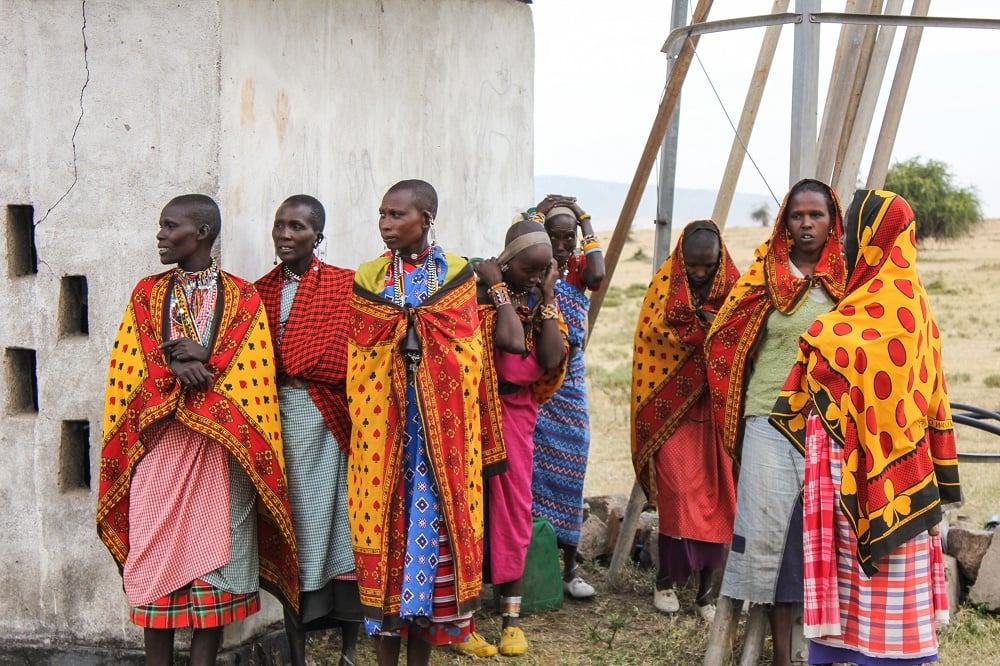
Tanzania: Maasai loss of land, culture and heritage
By Amina Haleem The culture of the pastoralist Maasai community residing in Mondorosi, Soitsambu and Sukenya villages of Loliondo district in northern Tanzania is rich in inherited traditions and social practices. Indigenous to the area, they…
3 min read
- 12
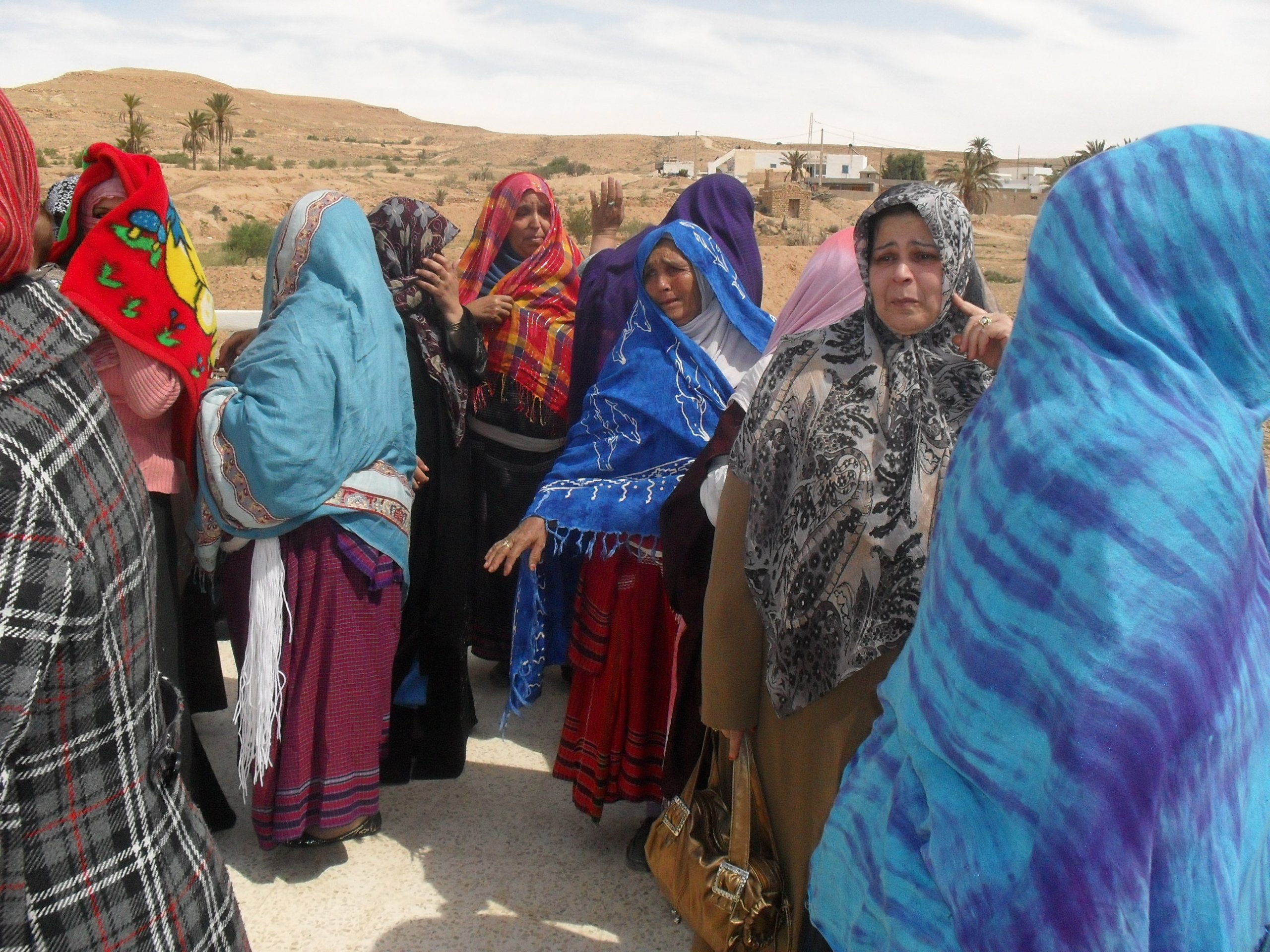
Increasing recognition for Libya’s Imazhigen
By Miriam Puttick While Libya’s fledgling democracy has struggled to establish a stable transition from Gaddafi’s dictatorship, there have nevertheless been some positive developments for the country’s minority and indigenous communities,…
1 min read
-
In 2016, Minority Rights Group International’s flagship annual report State of the World’s Minorities and Indigenous Peoples focuses on culture and heritages. This story pack features a collection of films, articles and photos that highlight the issues covered by the volume.
Executive summary
Culture is not only a central element of minority and indigenous identities, but also underpins a host of other areas such as health, education, livelihoods and spirituality. Yet the right to culture has until recently received limited recognition and still does not enjoy the same legal protections as many other rights. Despite this, the effects of cultural attrition or repression can be devastating for these communities, often deepening the impacts of expropriation, hate crime and other incidents of discrimination.
The pressures facing minority and indigenous cultures remain as acute as ever. Conflict, forced displacement and the destruction of physical heritage all pose threats to communities across the world, with traditions, beliefs and sites such as places of worship actively targeted to demoralize or terrorize a particular group. While militant groups and extremists are frequently the perpetrators, many states engage in similar acts of destruction or repression for political or economic gain: for example, the expropriation of indigenous territory to accommodate plantations, dams and other developments.
Often, however, the forces undermining minority and indigenous cultures are less direct but still powerful barriers to the continued vitality of their customs and traditions. Assimilation, for instance, besides being forced through official restrictions on language, art and other forms of expression, can also be experienced more subtly through globalization, mainstream media and a desire to avoid discrimination. As a result, minorities and indigenous peoples may feel obliged to move away from distinct aspects of their own cultures, even in countries with a stated commitment to diversity and multiculturalism. Migration, urbanization and other factors, whether voluntary or forced, can also lead to the loss of languages, traditional knowledge and other important cultural forms.
The legacy of cultural erosion and repression for minorities and indigenous peoples can be profound. From disproportionate levels of suicide and mental illness to impoverishment and lower life expectancy, the implications of this loss can be deep and last far beyond the immediate loss to affect multiple generations. Indeed, for many communities the disappearance of their heritage is now irreversible and looks set to continue. Within the next century, for instance, it is projected that anything between 50 and 90 per cent of the world’s 7,000 mostly indigenous languages will have died out. Similarly, restrictions on worship and belief have had a chilling effect on cultural expression for many religious minorities, particularly in the Middle East, where some countries have seen their Jewish populations diminish in recent decades from tens of thousands to just a few dozen.
Nevertheless, some norms can have profoundly negative implications for certain members of the community, especially women, and tradition can be used to reinforce existing hierarchies. In extreme cases, when a particular cultural practice is in violation of international law, states may be obliged to intervene to ensure that individual human rights are not violated as a result. Indeed, in many cases minority and indigenous women are themselves challenging narrow interpretations of their community’s traditions and actively creating alternative interpretations that support rather than weaken their participation in public life.
As this year’s volume of State of the World’s Minorities and Indigenous Peoples illustrates, however, minority and indigenous culture is not only a threatened resource but also a force of empowerment for communities in their struggle for recognition. Across the world, marginalized groups have mobilized and strengthened their sense of identity through reconnecting with their rich cultural heritage. From art, dance and drama to language, dress and cuisine, the complex facets of minority and indigenous culture have in many cases helped increase the social and political visibility of these communities, too. Nor are these instances of cultural revival focused solely on past traditions and achievements. Frequently, in the process of engaging with their cultures, communities have reinvented and revitalized them. As a result, they remain a vital element in their identities today – a fact all the more remarkable given the widespread history of discrimination and repression they have faced.
Regional overviews
In Africa, many minorities and indigenous peoples who have managed to preserve their ways of life for centuries are now facing the disappearance of their cultural traditions, often in the name of development. Actions such as evicting them from the land and resources on which they depend, deprive them of livelihoods, food, medicine and other essential needs, so pushing them further into poverty.
For many communities in East Africa and the Horn, such as Kenya’s forest-dwelling Sengwer or the numerous indigenous peoples residing in the Omo Valley in Ethiopia, culture is intimately linked to access to land. Land grabbing and forced evictions in these and other countries, often to accommodate energy projects, conservation programmes and tourism parks, have not only deprived them of shelter, livelihoods and essential resources, but also threaten the very basis of their identity. Elsewhere in the region, for example South Sudan, ethnic violence and conflicts over limited resources have led to the wholesale displacement of some communities, in the process disrupting their cultural traditions and practices.
In West and Central Africa, protracted conflict and inter-communal violence has meant that in many countries identity and culture remain contested and potentially volatile issues. This is particularly evident in Central African Republic, where targeted attacks and the continued presence of militias have created deep divisions between its Christian and Muslim communities, uprooting hundreds of thousands of people and forcing around 80 per cent of its Muslim population out of the country. Elsewhere in the region, too, mass displacement and insecurity has destroyed the fabric of communities and left long-established ways of life in limbo. During elections and other periods of unrest, as in Côte d’Ivoire ahead of its 2015 elections, underlying tensions around different identities can reignite. As in East Africa, land rights also remain a potent issue for many indigenous communities in particular, who continue to face the threat of eviction from the ancestral lands that have sustained them for generations.
Southern Africa’s minority and indigenous communities still struggle with the legacy of the region’s colonial past and the concentration of power among particular political elites. This has often been manifested in a range of rights violations – from lack of access to education and non-recognition of languages to control of ancestral lands and traditional livelihoods – that have undermined the rich cultural traditions of many communities. While in many countries significant strides have been made towards more equitable development, certain groups – such as San hunter-gatherer communities indigenous to much of Southern Africa – remain highly marginalized. In this context, the preservation of cultural practices and traditions remains an important part of a broader struggle for rights and recognition.
In the Americas, the continent’s troubled history of colonization and slavery continue to be felt in the marginalization and invisibility of its indigenous and Afro-descendant populations. In recent years, a renewed interest in their rich cultural traditions has contributed to a greater sense of empowerment and acceptance within their societies. But while this has been reflected in a revival of many artistic practices, it has also led to accusations of cultural appropriation as traditional dress, music and other art forms have been exploited by states and businesses for commercial or political gain.
The wide range of communities in North America, including black, indigenous, Latino, Arab and Asian minorities, together contribute to the region’s rich cultural diversity. Nevertheless, many minority and indigenous communities also face a multitude of challenges to maintain their traditions. This is due in large part to the continued inequalities they face, rooted in past discrimination and the indifference or even hostility certain cultural expressions are met with. Social dislocation, poverty and the absence of supportive spaces to nurture these traditions, not to mention the pressures of assimilation, can all contribute to the disappearance or silencing of minorities and indigenous cultures. Furthermore, despite the region’s cultural diversity, the legacy of oppression is still felt in the misuse or even mockery of many traditions – for example, the use of tribal names and symbols for sports teams, fashion and fancy dress.
In recent decades, many states in Central America have enacted new Constitutions and legal frameworks that provide greater protection to indigenous and Afro-descendant rights, including culture. In practice, these measures have not been sufficient to prevent continued discrimination and violence against these communities, especially around such issues as political exclusion and land rights violations, frequently associated with extractive industries such as mining and other forms of development such as agricultural plantations. In addition, periods of civil conflict in countries such as Guatemala have also decimated the cultural systems of communities targeted by governments or militias. In this challenging environment, minority and indigenous communities face a constant struggle to preserve their traditional practices, languages and unique worldviews. Nevertheless, these also provide an important platform to mobilize and assert their distinct identity against the pressures of assimilation.
In South America, similarly, the European invasion devastated the region’s extraordinary pre-Colombian civilizations and decimated its native populations – a trauma that overshadows its indigenous communities today. Despite their decline, the older civilizations continue to show their influence in many aspects of culture in South America, not least in languages and in symbols of nationality. In addition, the trafficking of millions of enslaved Africans has resulted in a sizeable Afro-descendant minority with rich and varied traditions that, despite forced assimilation and repression, have also survived. Although these traditions were suppressed or maintained in secret, there is now a resurgence of interest in Afro-descendant and indigenous culture across the region, linked to these communities’ broader struggle for recognition and respect. Nevertheless, the benefits of this development can be double-edged: for instance, the exploitation of communities by urban boutiques or galleries, with many indigenous artists underpaid and objectified. Globalization has also brought new challenges to the already threatened cultures and heritage of the region’s indigenous peoples, with young people, particularly, undergoing cultural change through access to media and communication. Furthermore, the cultures of these communities not only include social expressions such as music, arts, language or dress – the areas most likely to be celebrated by others – but also extend to spiritual practices and their relationship to their lands, wildlife and eco-systems: the very resources increasingly under threat of expropriation or destruction from state or corporate development. In Brazil, for example, the apparent celebration of indigenous culture ahead of the 2016 Olympics in Rio de Janeiro has occurred alongside continued land grabbing and human rights violations against these communities.
Across Asia and Oceania, host to a remarkable range of religions, languages and ethnicities, the situation for minorities and indigenous peoples varies widely. Yet a persistent challenge is the challenge of preserving distinct traditions and beliefs that differ from a particular form of state-prescribed nationalism – a definition frequently linked to authoritarianism, land and resources. And as communities are uprooted not only by forced displacement but also migration and urbanization, many are struggling to maintain their identities in new and unfamiliar contexts.
In Central Asia, tensions between neighbouring states, inter-communal violence and state authoritarianism have meant that the cultural traditions of religious and ethnic minorities in different countries in the region have been subjected to intense scrutiny. To a greater or lesser degree, every government in the region has staked its legitimacy on its image as a guardian and reviver of cultural traditions that are indispensable to the state’s survival in the modern world. Though discrimination based on ethnic, national or religious identity may be legally prohibited, in practice appeals to ‘tradition’ can be used to justify discrimination as well as to protect citizens from it. Amid increased security concerns about extremist organizations such as the Islamic State of Iraq and al-Sham (ISIS), the repression of Islamic political parties and organizations has been accompanied in countries such as Tajikistan by broader crackdowns on personal matters such as clothing. The tendency for states in the region to promote ‘unity’ through a narrow and homogenized nationalism has also encouraged aggressive prohibitions of particular religious practices among minorities such as Jehovah’s Witnesses, resulting in prosecutions and deportations.
South Asia covers a wide variety of minorities and indigenous peoples, spanning many different languages, religions and ethnicities. But while this diversity has long enriched the region, it also provides a continuous source of division in countries struggling with religious extremism, caste-based hierarchies and an increasingly exclusionary nationalism. This has left little space for minority and indigenous communities in many states: from targeted attacks against places of worship and the repression of traditional livelihoods to endangered languages and the prohibition of ancient practices, culture is frequently on the front line of inter-communal conflicts or government crackdowns. Poorly regulated top-down development is another threat that has often sacrificed the fabric of established indigenous communities by displacing them from their ancestral land, in the process devastating their rich and irreplaceable heritage. While across the region efforts are ongoing to improve stability through legal and political reforms, an essential element in achieving greater cohesion is to promote understanding and respect for the multitude of cultures coexisting in the region.
In Southeast Asia, one of the most significant barriers to the realization of minority and indigenous cultural rights is ethno-religious prejudice, often based on exclusive nationalist agendas whereby the cultures of minorities and indigenous peoples are, for the most part, neither recognized nor respected. Although there have been efforts to make national identities inclusive, in many countries across the region discriminatory policy and practices remain. Thailand, for example, has an almost exclusive Thai-language policy in schools. Officials have refused mother-tongue education reforms, arguing that this would pose a threat to the centrality of Thai language; this has led to poor performance and high drop-out rates among minorities and indigenous peoples. In Burma, Buddhist extremists are leading campaigns against Muslim cultural practices, such as women’s head coverings, with the implicit support of the government. While minority or indigenous cultural manifestations are often actively targeted by extremists, another challenge is that their traditions and identities may simply be overlooked. For example, in a region where so many of the economies are based on natural resource extraction, the importance of these territories to the cultural beliefs and practices of indigenous peoples is often side-lined by decision-makers promoting development – a process that not only displaces them from their ancestral lands, but also excludes them from vital livelihoods and spiritual sites.
While the experiences of minority and indigenous communities in East Asia vary widely, many share a history of forced assimilation and the erosion of their traditional cultures. In Japan and Taiwan, for instance, the legacy of state discrimination and land grabbing has left indigenous peoples struggling to sustain their cultures. Besides access to ancestral territories, a crucial element in the survival of their traditions is their ability to maintain their languages, many of which are increasingly under threat. In this regard, official measures, such as the approval in November 2015 of a draft law to promote indigenous languages in Taiwan, are much needed steps by the state to reverse decades of decline. Nevertheless, despite successful activism from communities across the region, governments continue to undermine the vitality of minority and indigenous cultures through insensitive or inappropriate development. This is particularly the case in China, where large-scale urbanization programmes combine in regions such as Tibet and Xinjiang with a highly securitized attitude towards local residents. Indeed, in the ongoing conflict between the state and minority communities, cultural and religious practices are often actively repressed by the state – an approach that serves only to fuel further tensions.
The Oceania region is distinctive in that many of the smaller Pacific island states have a high proportion of indigenous peoples that form majority populations. At the same time, in other countries of the region such as Australia, New Caledonia (Kanaky) and New Zealand (Aotearoa), colonial settlement and immigration have reduced indigenous populations to a minority in their own lands. Though across the region as a whole the indigenous population remains sizeable, continued poverty and exclusion have eroded many aspects of their rich cultural heritage. This encompasses not only sites of cultural importance but also the continuity and promotion of intangible traditional practices, including the transmission of native languages, whether as a means of communication or for cultural purposes. The pressures facing indigenous peoples have been exacerbated by the destruction or degradation of local environments and eco-systems due to natural disasters and the effects of climate change: as many communities have close spiritual connections and complex social systems attached to the land, these pressures can disrupt cultural systems as well as livelihoods, food security and health. Migration is also having an impact on oceanic indigenous cultures, as a high percentage of Pacific Islanders now live abroad or have moved from rural areas to cities. These processes can lead to significant upheaval and undermine traditional systems, though in many cases indigenous migrants have managed to maintain connections with their places of origin.
Alongside the protracted effect of the financial crisis, Europe has been reeling from a number of high-profile terrorist attacks as well as the emergence of a crisis that has seen more than a million refugees and migrants enter the region, including a large proportion of Syrians displaced by the conflict. Amid fears of further attacks inspired by the militant group ISIS, many governments have increasingly seen the swelling number of refugees as an issue of security rather than one of humanitarian protection. These developments have not only impacted on the treatment of refugees and migrants by many European countries, but also caused a shift in popular attitudes towards ethnic and religious minorities in general that has contributed to the rise of right-wing political organizations across the region, with actively hostile policies towards Muslims, Jews, Roma and other minorities. In this context, concerns around integration, assimilation and cultural difference have become increasingly divisive, reflected at times in suspicion and surveillance of minority spaces such as mosques, as well as an increased focus on language, social values and other issues. While these concerns have shaped official policy, they have also driven hate crime and hate speech across Europe. Indeed, many community members have been targeted solely on the basis of their identity, while places of worship, graveyards, cultural centres and other sites have also been attacked.
Events in Middle East and North Africa (MENA) continue to be dominated by ISIS and its concerted campaign of targeted violence across the region. Despite losing significant swathes of territory under its control in Iraq and Syria, ISIS nevertheless still controls large areas and subjects millions of civilians to a brutal rule of violence, threats and intimidation. Minorities in particular, such as Christians, Turkmen and Yezidis, have been targeted with human rights abuses including looting, house burning, torture, sexual assault and murder, in the process displacing entire communities from areas where they have lived for centuries. ISIS has also attracted wide publicity for its destruction of ancient heritage sites such as significant parts of UNESCO-listed Palmyra.
However, this is only part of a much broader assault on churches, mosques and shrines belonging to religious and ethnic minorities that continued throughout the year. Nevertheless, the challenges facing minorities and the survival of their rich cultural traditions are not confined to areas controlled by ISIS, nor are they wholly new. Indeed, the recent rise of violent extremism has been driven in part by longer-term factors, such as official discrimination, legal impunity and even state-led persecution that are evident in many countries across the region. Religious, ethnic and linguistic minorities have frequently faced restrictions on their ability to worship, to engage freely in cultural practices or even speak their native tongue – all symptoms of a wider climate of intolerance that threatens the region’s rich diversity.
-
Watch a short film outlining the key issues covered in MRG’s State of the World’s Minorities and Indigenous Peoples 2016 report.
-
Since 2010, MRG has been using cultural programmes (such as street theatre) to challenge endemic discrimination and promote the human rights of minorities and indigenous peoples worldwide. This chapter provides an overview of our work and successes.
What have we done so far?
Street Theatre Programme: Botswana, Dominican Republic, Kenya and Rwanda (2010-12)
Engaging professional and amateur actors together with minority activists in order to deliver public performances, MRG has brought to life a programme that challenges racism and stereotypes of minority and indigenous groups.
The performances were produced through collaborative work between acting groups from majority and minority communities, confronting recurrent forms of discrimination, linking the tragic and the comic. Emotional and strong story lines were the main strategy to catch the public’s attention. Raising empathy and awareness, the spectacles brought food for thought to both sides.
MRG’s partners made a film about the project in each country, showing diverse methodologies, techniques, and reactions. The compilation of the four films resulted in a global film called Say My Name.
MRG held a street theatre programme in the Dominican Republic aiming to increase Dominico-Haitian citizens’ participation in public life and access to services.
Key successes in the Dominican Republic
- Street theatre performances reached over 3000 audience members in the Dominican Republic
- 12 Leaders of Dominico-Haitian community trained in using theatre as a social tool for community education;
- More than 15 national and international advocacy actions conducted to raise awareness of, and fight ongoing discrimination and statelessness of Dominicans of Haitian descent minority;
- Documentary film “Our Lives in Transit” featuring the challenges faced by the Dominico-Haitian minority produced and screened in 6 countries, including in London and Madrid.
Walk Into My Life: UK, Sweden, Hungary, Spain (2015)
A social inclusion project that encourages ethnic, religious, linguistic, cultural and migrant minorities to share stories of cultural identity and daily discrimination in order to build more integrated communities.
Focused in local initiatives to increase participation and visibility of excluded groups, Walk Into My Life aimed to transform public and private spaces in spheres of critical and constructive dialogue: stimulating debates on citizenship, belonging, and rights.
The programme facilitated the encounter of arts within multi cultural environments. It debated the several meanings of “home”, seeking answers in stories, performances, installations, and workshops.
Middle East and North Africa: Drama, Diversity and Development (2014-17)
Using the power of arts, this programme aims to bring both entertaining and educational performances in at least six countries of the Middle East and North Africa (MENA) region. Promoting diversity and respect through theatre acts, debates, trainings, feasibility studies, and advocacy projects towards the increase of cultural rights.
Operating as a capacity building facilitator in Jordan, Egypt, Palestine, Lebanon, Morocco, Algeria, and Tunisia, this programme is an exciting and dynamic way to promote diversity and confront discriminative practices against minorities.
Intending to highlight the importance of culture – and its related rights – for social cohesion. The programme is an opportunity to increase dialogues about the existence and positive integration of minority communities in developing democracies. The provision of resources and knowledge sharing stimulates the establishment of a regional network of cooperation in the realm of culture, bringing excluded groups into the spotlight.
Key successes
- Project has significantly contributed to capacity building of cultural operators in the MENA region. The project has involved, among others, 23 street theatre organizations from seven countries;
- Project has increased understanding and acceptance of various minorities by majority populations in the region, by using street theatre and other cultural expressions as a medium for countering discrimination and racism.
Bringing cultural expression to the streets is a way of reaching out to new and broader audiences. As a complement to legal statutes, it challenges stereotypes and misrepresentations of minorities and indigenous peoples in a more personal and understandable manner. Working collaboratively across groups, communities, organisations, and countries, MRG’s cultural programmes use the power of subjectivity to break stereotypes and build confidence.
Find out more about our programmes.
-
By Sara Vincini
Italy’s Roma are among the country’s poorest and most marginalized communities, with a long history of discrimination that has only intensified in recent years. A recent poll by the Pew Research Center found that as many as 85 per cent of Italians hold negative views towards Roma, reflected in high levels of hate crime and enduring stereotypes against the community.
Today it is estimated that around 180,000 Roma are in Italy, 35,000 of whom are forced to live in decrepit and dangerous camps at the edges of towns without access to sanitation, running water or other services. These settlements, besides being under constant threat of eviction by local authorities, have regularly been attacked by racist groups, with politicians themselves at times encouraging the violence. Following the announcement in March 2015 by Pope Francis of the 2016 Jubilee of Mercy in Rome –a major religious celebration expected to bring thousands of pilgrims and tourists to the capital –local authorities used the event as a pretext to carry out further forced evictions of Roma settlements, which tripled to an average of nine evictions per month. Far-right and xenophobic political parties in Italy –especially the Lega Nord (Northern League) –took to Italian TV and social media to campaign against Roma settlements, with Matteo Salvini, leader of the party, urging citizens to ‘raze Roma camps with bulldozers’. This sparked vehement reactions from leftwing parties, which rejected Salvini’s proposal and called for more effective and inclusive actions to integrate the Roma minority.
While strengthening legal protections for the community is an important step in improving the situation of Roma, cultural expression and interaction also have an important role in addressing popular attitudes and misconceptions about the community. As a result, some non-governmental organizations (NGOs) working on advocacy and social emancipation for Roma in Italy have developed programmes that explore the potential of the arts to engage different communities, break down barriers and enable those without a public platform to express themselves. Among other activities, the organization 21 Luglio previously developed a programme that seeks to address the barriers and discrimination that Roma frequently experience at school by bringing them together with non-Roma children to engage in dance and theatre –an accessible and effective way to bring different communities together. Another rights group, Roma Onlus, also works to empower Roma through teaching Roma history and customs to raise awareness among other Italians of the community’s rich heritage. One project, for example, has focused on traditional Roma cuisine as a way of engaging non-Roma. Initiatives such as these can be powerful platforms to break down barriers and counter negative representations of Roma disseminated by media, right-wing politicians and racist groups. One of the challenges that Italy’s Roma face is that, since they are widely ostracized, the community is largely segregated from other Italians –a fact that can enable harmful or misleading representations to take root. Cultural engagement, by raising awareness and promoting interaction, not only helps to undermine hate speech but can also enhance the community’s sense of identity.
Originally published in State of the World’s Minorities and Indigenous Peoples 2016.
Photo: Roma and non-Roma children perform a play in an Italian school about the history of Roma people. Credit: 21 Luglio.
-
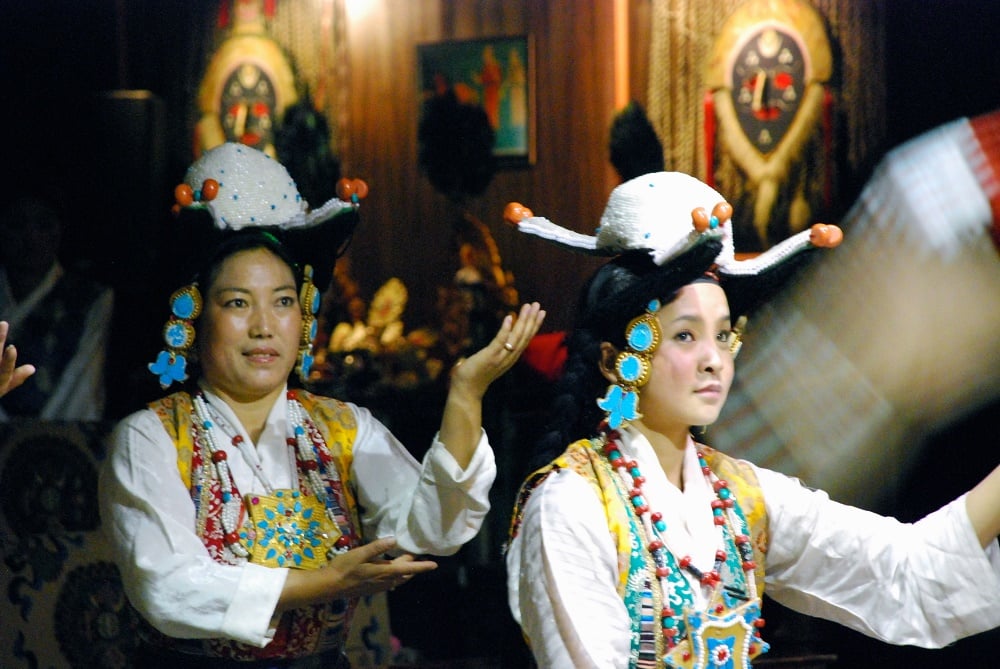
Tibetan opera in Lhasa, Tibet. Cultural expressions, such as Tibetan opera, are transmitted from generation to generation, are constantly recreated and provide minorities and indigenous peoples with a sense of identity and continuity. Credit: Gunther Hagleitner. 
Street theatre performance in Kenya. For many years, MRG has been working with partner organizations in Kenya and other countries to explore how street theatre can address racism and discrimination. Credit: SAFE KENYA. 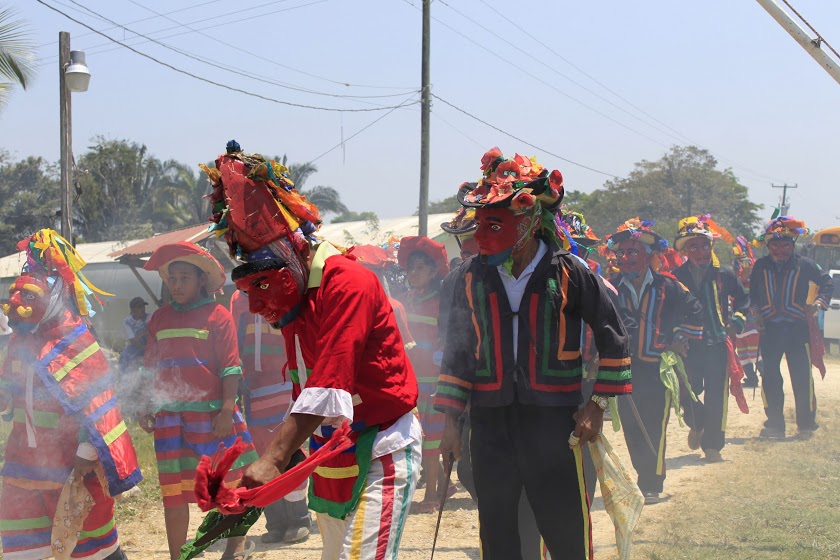
Maya in Belize perform a traditional dance with incense. Credit: Chelsea Purvis/MRG. 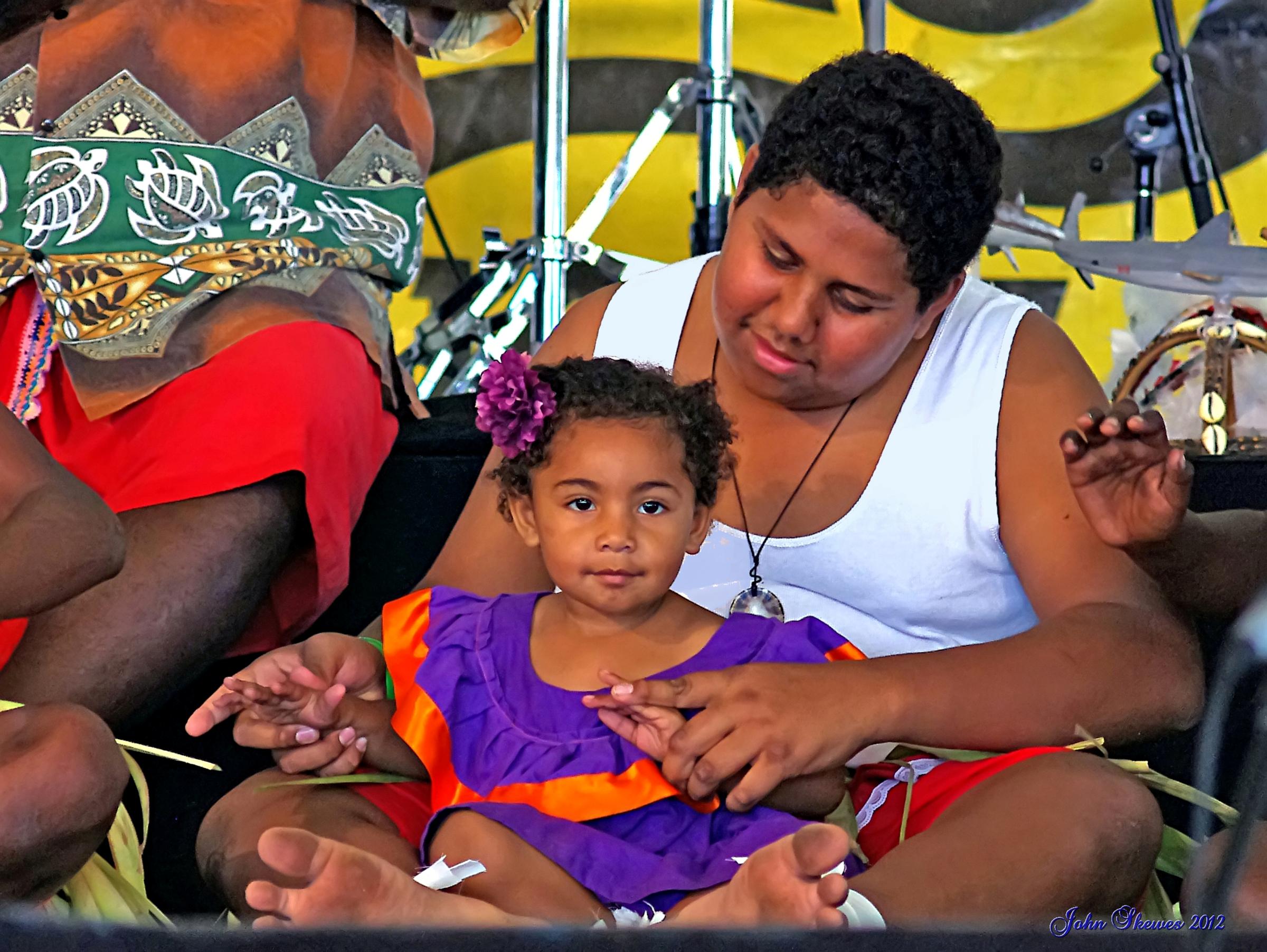
Torres Strait Islander dancers at a cultural festival in Queensland, Australia. Credit: John Skewes. 
Roma and non-Roma children perform a play in an Italian school about the history of Roma people. Credit: 21 Luglio. 
Annual cultural festival celebrated by Wayeyi in Botswana. Credit: MRG. 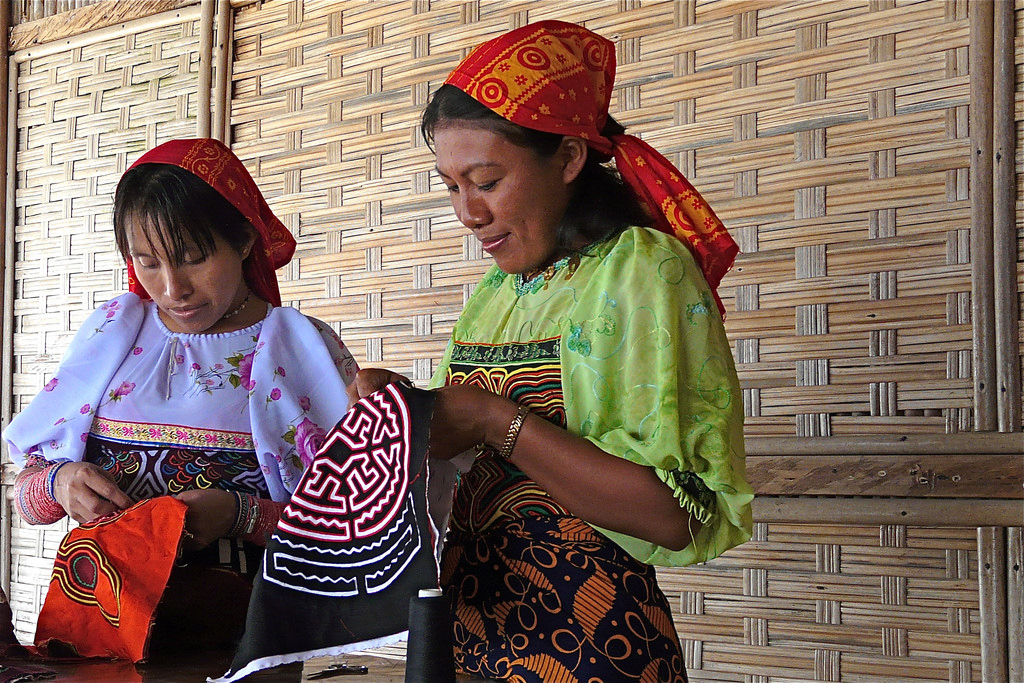
Kuna women sew molas in Panama. Credit: Rita Willaert. 
Street theatre performance in Morocco. MRG has been using street theatre as a tool to address discrimination and racism in the Middle East and North Africa. Credit: Laura Quintana Soms/MRG. -
By Hanna Hindstrom
At 4.00 am on 1 September 2015, a troop of armed men stormed an alternative school for indigenous Lumads in the southern Philippines. Teachers and students were dragged from their dormitories and rounded up, together with hundreds of other civilians, in the small village of Diatagon in Lianga, Surigao del Sur. Two indigenous leaders – known for their work protecting the community’s ancestral lands against encroachments from mining companies–were hauled in front of the crowd and executed at point-blank range. The head of the alternative school, Emerito Samarca, was later found in one of his classrooms, with his throat cut and two gunshot wounds in his abdomen.
According to local activists, there were 95 attacks on Lumad schools in the southern Philippines between September 2014 and 2015, an average of eight cases per month. In February 2016, a compound hosting displaced children in Davao City was torched by unknown assailants, destroying two dormitories and a shelter for evacuees. ‘Lumad schools continue to draw the ire of the regime’, noted the Alliance for the Advancement of Peoples Rights (Karapatan). ‘The attacks range from red tagging, actual military encampment, threat and harassment of the teachers, students and parents, closing down and burning of school houses.’
The Lianga shool, Alternative Learning Center for Agricultural and Livelihood Development (ALCADEV), was founded in 2004 as a unique facility to support secondary education for indigenous youths relevant to their culture and needs. It offers a combination of academic, technical and vocational skills, focusing on providing sustainable livelihoods for Lumad communities. Formed by two indigenous organizations, the school aims to boost educational opportunities for marginalized Lumads and help protect their cultural and land rights in the face of growing threats. It is one of a network of culturally sensitive schools offering alternative pedagogy for Lumad children recognized by the Filipino education ministry. Indigenous peoples in Mindanao, which has been racked by ethnic conflict and a communist insurgency for decades, have some of the lowest educational levels in the Philippines. Part of the problem is the entrenched discrimination towards indigenous youths within the centrally managed school system, which often treats them as outsiders and second-class citizens. The time and cost of travelling long distances to reach public schools also place insurmountable burdens on many Lumad families. Furthermore, Lumads –a cluster of 18 indigenous communities in Mindanao –are often caught in the crossfire of a protracted civil conflict in the southern Philippines, and regularly accused of harbouring communist sympathies. Alternative education has become the target of particular scrutiny and distrust, with the military accusing indigenous schools of promoting communist propaganda. State officials have drawn outrage for recommending the introduction of new schools run by the military.
The Save Our Schools Network has accused the army and pro-government militias of staging premeditated attacks on alternative education institutes in order to marginalize indigenous land and cultural rights. Samarca, who was slain at Lianga, was also a vocal campaigner against large-scale development projects that fuel violence and displacement in the southern Philippines. Mae Fe Templa, Convenor of Save Our Schools Network, stated, ‘Alternative Lumad schools are pushing for their own culturally relevant pedagogy that liberates indigenous peoples from the yoke of institutionalized discrimination and corporate plunder of ancestral lands.’ The government has denied any involvement in Samarca’s murder, claiming the attackers merely dressed up in army fatigues that matched the insignia of the nearest battalion.
In October, the University of Philippines hosted a major cultural event in Manila, the Manilakbayan 2015, to commemorate Lumads and raise awareness of the escalating assault on indigenous rights in the country’s restive south. It included a mix of political and educational activities, as well as a celebration of Lumad culture, arts, food and sports. This year’s event was strategically focused on the destruction and militarization of indigenous schools in Mindanao.
Indigenous activists in the southern Philippines insist that the right to a free and culturally tailored education is fundamental to defending indigenous heritage and rights, which are often intimately tied to the protection of ancestral lands and resources. The government’s failure to investigate crimes against Lumad schools has left the communities more vulnerable to further attacks and encroachments.
Originally published in State of the World’s Minorities and Indigenous Peoples 2016.
Photo: Lumad woman in The Philippines. Credit: Andy Enero.
-
By Amina Haleem
The government of Tajikistan, the smallest country in Central Asia, has long targeted what it perceives as non-Tajik influences on its domestic culture. Poorly developed and discriminatory national policies have fragmented Tajik society into insular ethnic identities, a legacy of the country’s five-year civil war that ended in 1997. Hostile relations with neighbouring Uzbekistan have reinforced Tajik nationalism, making daily life difficult for minorities, particularly Uzbeks. Tajikistan’s authoritarian nationalism has affected the ability of Uzbek speakers to participate meaningfully in the political process, as the state’s lack of pluralistic language policies have essentially excluded Uzbek minorities from the political sphere.
In addition to language barriers and low political representation, ethnicity directly affects employment prospects for Uzbeks who face discrimination while applying for jobs. There are reports of private employers rejecting applicants simply because they are ethnic Uzbeks. On the other hand, government officials have flatly rejected claims that discrimination occurs during consideration of applicants for civil service positions even though they must provide information on their ethnic origin during recruitment. Amid these restrictive policies, some ethnic Uzbeks have attempted to assimilate into the heavily exclusive society by requesting that their children be registered as Tajik rather than Uzbek in order to increase their prospects of a better future in Tajikistan.
A heightened fear of religious extremism has intensified the government’s crackdown on what it perceives as ‘foreign’ influences within Tajik society, including reports of police beating men with beards and even forcibly shaving them. On Tajikistan’s Mother’s Day in March 2015, President Emomali Rahmon vocally denounced dark clothes on women as ‘foreign’, and instead encouraged them to wear traditionally colourful and vibrant clothing. Although he did not mention the hijab, commentators noted that the president’s target was clear. The Mayor of Khujand, Tajikistan’s second largest city, quickly followed with a demand to ban the sale of Iranian and Afghan clothes, leading to a mass inspection of Islamic clothing shops.
The annual Hajj pilgrimage to Mecca has also been restricted for individuals under 35. In April, the Committee for Religious and Cultural Issues issued the limitation and linked the decision to Saudi Arabia’s annual quota for Tajikistan’s pilgrims, which was reduced from 8,000 to 6,300. However, many citizens believe that the ban on youth travel is a pretext for a larger government strategy to prevent radicalization. The country’s lawmakers have scrutinized individuals whom they believe have links to extremist groups and have expressed support for excluding all religiously inspired opposition parties from the political sphere.
President Rahmon also asked parliament this year to consider passing legislation that would forbid the civil registry from accepting names with Arabic origins and names designated as too alien to the culture. But Muslims are not the only religious group facing discrimination in the country: Christian denominations, including Jehovah’s Witnesses, face intense scrutiny. Heavy‑handed restrictions on religious practices and foreign‑influenced holidays have intensified because they are viewed as a threat to secular Tajik culture: for example, in 2015 the government implemented increasingly restrictive measures on Christmas celebrations by banning gift-giving and Christmas trees in educational institutions. Ultimately, however, the government has further alienated its minorities through its crackdown on diversity–despite the fact that fostering a climate of tolerance and multiculturalism in the country is the best path towards a stable and flourishing Tajik society.
Originally published in State of the World’s Minorities and Indigenous Peoples 2016.
Photo: Uzbek boys in Tajikistan. Credit: Evgeni Zotov.
-
Filmed in four countries, ‘Say My Name’ tells the stories of people on the outside of society facing extreme discrimination. Name-calling, bureaucratic loopholes and racial exclusion prevent Baniris, Valentina and Phineas and thousands of others from studying, working or healthcare. Desperate for change they become actors presenting their reality to a stunned audience.
Crossing visually diverse landscapes, we see theatre performed in the streets of Botswana, Kenya, Rwanda and the Dominican Republic. The challenge is not only to change the minds of the general public and state authorities, but also consider their own beliefs within the group. As difficulties surface they must overcome their prejudices and accept each other.
This is a Minority Rights Group production, funded by the European Union. The contents of the film is the sole responsibility of Minority Rights Group and can under no circumstances be regarded as reflecting the position of the European Union.
Photo: Street theatre performance in Kenya. Credit: SAFE KENYA.
-
by Genna Naccache
Afro-Peruvians, who make up around 10 per cent of Peru’s population, have long suffered marginalization in every area of their lives. From health to education, many community members have limited access to basic services and few are able to rise up to senior positions in business, government and other fields. But while their status as a readily identifiable minority has often led to direct discrimination and even racial slurs in the street, in public life the problem they still struggle with most is invisibility –a challenge that anti-racism and human rights organizations in the country have worked hard to confront.
Historically, Afro-Peruvians had relatively little in the way of community organizations until the emergence in the 1950s of a cultural revival, with dance and theatre groups providing an important platform for a broader mobilization. While the Afro-Peruvian community has arguably not managed to achieve the same recognition as Afro-descendant communities in some other South American countries, their advocacy has nevertheless delivered some important milestones. In 2006, the Peruvian government formally inaugurated the first National Afro-Peruvian Culture Month, centred around 4 June, to promote awareness of their history and contributions through conferences and activities. These events, held every year since, have managed to attract both national and international coverage. The beginning of the 2015 celebrations was marked by the Minister of Culture, Diana Alvarez-Calderon, formally petitioning the United Nations Educational, Scientific and Cultural Organization to add the Afro-Peruvian dance Hatajo de Negritos y las Pallas to its list of Intangible Cultural Heritage of Humanity in Need of Urgent Safeguarding.
Despite the government’s attempts to provide greater recognition of Afro-Peruvian culture, the issue has caused some division among activists within the community. While many believe that these are important public initiatives that acknowledge the contribution of Afro-Peruvian heritage –something largely absent until recently–others argue that these alone do not address Peru’s deeply embedded ethnic inequalities, still so powerful in the country’s popular beliefs.
Indeed, some have even argued that the emphasis on areas like cooking, music and other cultural aspects may serve to reinforce stereotypes about the community. According to this perspective, without a wider social transformation, these official celebrations risk being a token gesture that distracts from the real issues. Among other efforts, activists are currently advocating for the expansion of ethnic classifications in the 2017 National Census to include Afro-Peruvians. This initiative stems from the fact that Peru has not included its Afro-Peruvian population in its census data collection since the early 1940s. Another issue is popular attitudes of racism, a widespread but rarely acknowledged reality for many Afro-Peruvians. However, 2015 saw an important step forward, with the country’s first ever conviction for racial discrimination in November. The case concerned an Afro-Peruvian woman who, after being racially abused at her work for a municipal water utility by a colleague, found her complaint ignored by her supervisors and was subsequently fired from her job after filing a criminal case. The ruling found both her former manager and head of human resources guilty, sentencing them to a prison term as well as a fine.
This progress testifies to the enormous efforts made by the Afro-Peruvian community to achieve greater respect and equality within society –though the struggle continues. Denial of Peru’s Afro-descendant population is now hopefully being superseded by greater recognition of the community’s rich and distinct identity. While the celebration of Afro-Peruvian culture is only one part of this, it does offer an invaluable public platform to articulate the community’s urgent social and political concerns. By maintaining control over their heritage and traditions, including but not restricted to artistic mediums such as theatre, music and dance, Afro-Peruvians can engage their rich culture in their struggle to end discrimination.
This case study was originally published in State of the World’s Minorities and Indigenous Peoples 2016.
Photo: Afro-Peruvian woman. Credit: Annabelle Avril.
-
By Mariah Grant
In October 2015, Jeffrey McNeil-Seymour walked into a Halloween costume shop in Kamloops, British Columbia, Canada with his sister and teenaged nieces. McNeil-Seymour, an instructor of social work at Thompson River University and a Tk’emlups Tee Secwepemc, quickly found what he had suspected the shop was selling–costumes poorly mimicking the dress of indigenous peoples in Canada. From Facebook posts and group pages, he already knew how upset many were that shops in Canada continued stock and advertise costumes that culturally misrepresented indigenous peoples, despite years of protests. For this reason, as McNeil-Seymour puts it, he took it as ‘a call to action’ –‘because,’ he says, ‘it is an issue that I’ve dealt with before’.
Within the Halloween shop, he and his family came upon costumes such as one titled ‘Chief Many Feathers’ and others that McNeil-Seymour described as a ‘hypersexualized Pocahontas costume’. But when he decided to speak with an employee at the checkout stand, he found them unreceptive to his appeal to have the offensive costumes removed. In response to the employee’s justification that Canada was a free country, McNeil-Seymour responded, ‘How is it a free country when racism still prevails?’ McNeil-Seymour decided to address the issue with the store’s head office and also raised the issue publicly over social media. Subsequently, in response to attention from local and national media, the shop released a statement claiming that the costumes were not meant to offend but were simply part of the ‘fun’ of the Halloween festivities. However, as highlighted by the response of many activists and community members in the following weeks, this sort of misrepresentation is often a source of deep hurt and humiliation for Canada’s indigenous population.
But are not most cultures mocked during Halloween? For McNeil-Seymour, this argument is a familiar one. Indeed, during his visit to the costume shop he also observed stereotyping costumes of Mexicans and Saudis. Nevertheless, he does not concede that this means the discussion on the harm of misrepresenting indigenous people during this holiday, or in other forms throughout the year, should be muted. Nor does it imply that one costume is absolutely worse than another. What is important, though, is that for some indigenous peoples these costumes perpetuate a long history of discrimination that trivializes their lived experiences.
McNeil-Seymour sees the issue of Halloween costumes as one that goes far beyond the problem of one night of fancy dress. Instead, it is an opportunity to highlight the deficiencies in Canada’s education system regarding its history of colonization and the continued typecasting of indigenous peoples as primitive: in his words, ‘the vibrancy of the culture is relegated to the past versus looking at it now as a culture of revival, of renewal’. As he has highlighted, this overlooks the fact that indigenous peoples in Canada are part of a ‘resurgent culture’, evidenced by many established and emerging indigenous fashion designers. Projects such as the Toronto‑ased Setsune Indigenous Fashion Incubator also provide spaces for designers to learn new and traditional pattern, clothing, jewellery and accessory-making techniques.
Even more troubling, however, is McNeil-Seymour’s assertion that the costumes are a clear ‘metaphor’ for the continued violence inflicted against indigenous women and girls. Communities have faced decades of deadly inaction, at many levels, and of failure to confront and address the disproportionately high rates at which indigenous women, girls, transgender and two-spirit people are murdered and go missing in Canada.
These Halloween costumes, he argues, serve to reinforce the invisibility of this issue by normalizing the role of indigenous women and girls, and also transgender and two-spirit people, as readily consumed and discarded:
‘Here are people going out and purchasing these cheap plastic costumes, and they’re for a one-time use, and they’re easily disposed of afterwards.’ By sexualizing even those most sacred and respected of traditional roles and symbols, he believes, these costumes have the effect of casting indigenous individuals as objects and thus targets for gender-based violence.
Ultimately, McNeil-Seymour does not see these costumes being entirely removed from store shelves before the next Halloween, despite the attention his protests have attracted. But he does see promise in the way social media has been used to mobilize and educate. Open dialogues on the internet and public platforms have also brought to light other important issues surrounding cultural misappropriation and intellectual property rights for indigenous communities.
A month after the controversy over the Halloween costumes, for example, another story broke about the apparent wholesale lifting of a sacred Inuit design by a Canadian clothing company. While this was hardly the first time that indigenous heritage has been appropriated, what was more surprising was the retailer’s subsequent apology and the withdrawal of the offending article –a small but promising sign of progress for Canada’s indigenous population.
Originally published in State of the World’s Minorities and Indigenous Peoples 2016.
Photo: Heiltsuk girl in Canada. Credit: United Nations Photo.
-
By Amina Haleem
The culture of the pastoralist Maasai community residing in Mondorosi, Soitsambu and Sukenya villages of Loliondo district in northern Tanzania is rich in inherited traditions and social practices.
Indigenous to the area, they have a strong sense of identity and spiritual attachment to their ancestral land. However, the establishment of wildlife conservation areas and tourist safaris has resulted in severe disruption to their way of life. Now, the community’s struggle to maintain a connection with their land continues amid legal battles, aggressive globalization and luxury tourism.
Pastoralism is part and parcel of their semi-nomadic way of life, but land alienation directly affects their ability to raise livestock and earn a precarious living. Cattle play a central role in Maasai customs as a measure of wealth and are frequently exchanged between friends, family and in marriage ceremonies.
The land designated for conservation in their territory, from which they have been evicted and are no longer able to access, tends to be the most fertile areas for grazing livestock.
They are also unable to access important water sources and plants to create traditional medicines and treat diseases. The fact that they cannot utilize their medicinal practices means that this aspect of their cultural knowledge may disappear.
Maasai have had ongoing land disputes with the Tanzanian government for over 30 years. In the 1980s, 10,000 acres of Maasai pastoral land was sold to Tanzania Breweries Limited (TBL) to cultivate wheat and barley.
Although the Maasai villages were offered no compensation and were not consulted regarding the land transfer, they were not prohibited from accessing most of the land to graze and water their livestock as TBL only used around 700 acres for cultivation. For 19 years the arrangement continued and the Maasai community retained its customary ownership of the land. This situation ended in 2006, when TBL sold the entire acreage plus an additional 2,617 acres to Tanzania Conservation Limited (TCL), the Tanzanian subsidiary of US-based tourism company Thomson Safaris.
Since that time, the community has been denied access to over 12,000 acres of land on which they have historically grazed their cattle and sustained their traditional livelihood. With international support, the Maasai villages initiated legal proceedings in 2010 based on an adverse possession land claim in domestic courts against TBL and TCL. Not only did they seek to reclaim the land they once held, they also sought an injunction against land development for tourism pending the court’s decision on the merits. Unfortunately the Maasai’s application was dismissed on procedural grounds in 2013, but the community re-lodged their case the same year, requesting the court to revoke the tourism company’s illegally granted land title and award damages for the suffering endured as a result of their land exclusion.
The case was pending until October 2015 when the Maasai community suffered a disappointing loss. Although the Arusha High Court acknowledged that 2,617 acres of the disputed land were indeed unlawfully acquired–it being added on to the 10,000 acres in the most recent land transaction without consent –the majority of the decision favoured the defendants. No actual damages were awarded to the Maasai, who remain prohibited from entering the land to use its resources. The villagers are appealing the decision and hope to resolve this dispute in their favour.
In the meantime, Maasai continue to suffer the effect of discriminatory state policies. Elsewhere in Loliondo, the community experienced further evictions, with dozens of homes burned to the ground and numerous Maasai injured by Tanzanian police during 2015. Alongside the loss of homes and livelihoods, the struggle to transmit the intangible aspects of cultural knowledge and sacred practices to younger generations remains a very real concern –not only in Loliondo, but right across Maasai territories in Kenya and Tanzania.
And while the Maasai people’s identity is under increasing threat, companies have been profiting from Maasai imagery by associating their products with the indigenous community to promote sales. From Land Rover to Louis Vuitton, an estimated 80 companies are currently using the Maasai name and/or imagery. Maasai receive no benefit from the millions of dollars in revenue earned from this exploitation; the vast majority live below the poverty line.
Furthermore, the unique visual artistry and heritage of Maasai is often misused in its commercialization: for example, Maasai are sensitive about the portrayal of their bodies and jewellery because beads and colours have distinct meanings, which, if portrayed inaccurately, can be deeply offensive. Over the last few years, Maasai activists have made efforts to form a general assembly of elders to represent them in formal negotiations with such companies in order to safeguard their culture through intellectual property protections –an important step in the community’s efforts to regain control of their lives.
Originally published in State of the World’s Minorities and Indigenous Peoples 2016.
Photo: Maasai women in Tanzania. Credit: Carla Clarke/MRG.
-
By Miriam Puttick
While Libya’s fledgling democracy has struggled to establish a stable transition from Gaddafi’s dictatorship, there have nevertheless been some positive developments for the country’s minority and indigenous communities, specifically in terms of securing recognition of their distinct cultural identity and language rights. This is particularly the case for the Imazighen (Berbers; singular Amazigh), long marginalized under the Gaddafi regime. For decades, the existence of the Imazighen as a distinct indigenous group was denied: the Tamazight language could not be taught in schools, children could not be registered with non-Arab names and books written in Tamazight were destroyed.
Since the fall of Gaddafi, bolstered by Amazigh activism, there has been a revival in use of the language as schools offering Tamazight lessons have been established, language textbooks have been printed and Tamazight media outlets have flourished. A law passed in 2013 recognized the Tamazight, Tuareg and Tebu languages and upheld the right of minorities to receive education in their mother tongue as a voluntary option. In August 2015, the first democratic elections for the Amazigh Supreme Council were held, and a body formed equally of men and women was created.
The challenge of Amazigh leaders remains securing recognition for their rights at the national and societal level, including by ensuring that the future Constitution includes Tamazight as an official language. Imazighen have already boycotted the Constitutional Drafting Committee, followed recently by Tuaregs and Tebu, due to what they see as the assembly’s exclusionary approach and lack of commitment to minority rights.
Originally published in State of the World’s Minorities and Indigenous Peoples 2016.
Photo: Imazhigen women in Libya. Credit: Magharebia.